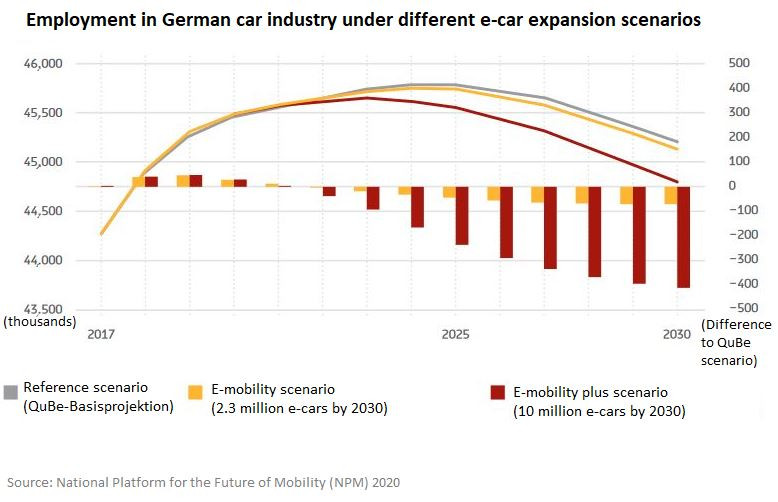Reliance on imports for e-mobility could cause major job losses in Germany – gov advisors
The self-reliance of Germany's carmakers for producing electric vehicles has to increase substantially over the next years if massive job losses in one of the country's most important industries are to be avoided, government advisers of the National Platform on Future Mobility (NPM) say in a new report. "If the competitiveness of Germany's industry regarding e-mobility does not improve in the next years and the need for import for battery cells and e-cars grows in line with the roll-out, effects on the employment structure would be significant," the NPM concludes in its report. Under the most pessimistic scenario, there could be up to 410,000 fewer jobs by 2030, about 0.9 percent of all jobs in the country, the NPM says. The advisors add that the country's car producers will no longer be able to create wealth and employment along the entire production chain as they do today; production of e-cars can be automated much better than that of combustion engine cars. Investing continuously in training and identifying new potentials for value creation through changed business models are necessary for carmakers to retain jobs. "We can already see today that not only the number of jobs in the mobility sector will change but also the quality of jobs," said Jörg Hofmann, chairman of the IG Metall labour union and leader of one of the NPM's working groups. The NPM says companies should not deal with the transition alone and call for joint "competence hubs" of different companies in cooperation with government agencies to coordinate further education programmes and adjust them to local needs.
Carmakers are under pressure to electrify their car fleets in order to improve the transport sector's emissions reduction performance and to comply with EU climate and air quality targets. The government's climate action programme stipulates that up to ten million e-cars are put on the road in the country by 2030. In January 2019, around 83,000 purely electric cars and 340,000 hybrid cars were registered in Germany, and about 63,000 additional new purely electric cars were registered throughout that year.

